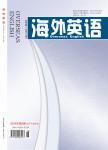A Critique on Katie's Language in Mockingbird Don't Sing
A Critique on Katie's Language in Mockingbird Don't Sing作者机构:广州大学外国语学院 广州市第二外国语学校
出 版 物:《海外英语》 (Overseas English)
年 卷 期:2016年第9期
页 面:234-235,240页
学科分类:0501[文学-中国语言文学] 0303[法学-社会学] 050102[文学-语言学及应用语言学] 03[法学] 030303[法学-人类学] 05[文学]
主 题:Mockingbird Don’t Sing Katie’s language theoretic analyses Behaviorism the critical period hypothesi
摘 要:This paper aims at critiquing Katie s language in the famous film, Mockingbird Don t Sing, which is a 2001 American independent film based on the true story of Genie, a modern-day feral child, discovered in California in 1970. The analyses of Katie s language are based on Katie s language by the stimulation of some people around her after she escaped from her home according to the theories of the interactionist position, Behaviorism, the affective filter hypothesis, Innatism, the stages of language development and the critical period hypothesis. Katie s abnormal language bitterly proves the importance of critical period for language acquisition and language learning.



